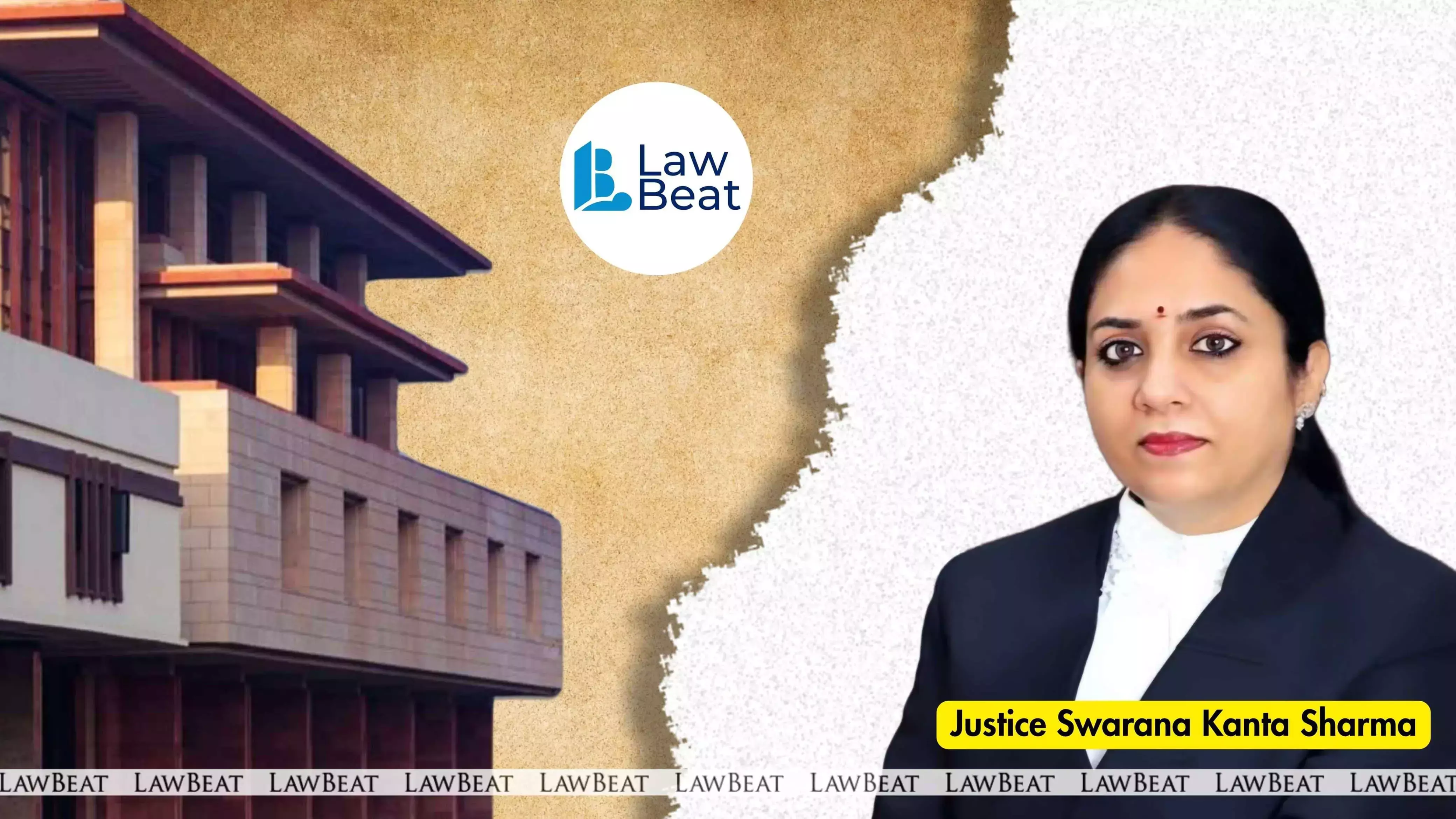“Financial Support Delayed Is Dignity Denied”: Delhi HC Stresses Timely Maintenance Is A Legal Right, Not Charity

In a judgment reinforcing the constitutional and legal importance of spousal and child support, the Delhi High Court has observed that even a day’s delay in the payment of maintenance defeats its core objective, adding that timely disbursal of financial support is essential to uphold the dignity and security of a dependent wife and child.
The Single Bench of Justice Swarana Kanta Sharma, while hearing a husband's challenge to a family court’s interim maintenance order directing him to pay Rs. 45,000 per month to his estranged wife and their minor child, held that maintenance is not a matter of benevolence or charity, but a legal and moral duty that must be fulfilled with urgency and consistency.
“Financial support delayed is dignity denied, and this Court is conscious of the fact that timely maintenance is integral to safeguarding not only subsistence but the basic dignity of those who are legally entitled to such support,” the Court said.
The Court modified the earlier order to the extent that the wife would continue receiving Rs. 22,500 per month, while the minor child would be entitled to Rs. 17,500 per month as interim maintenance. However, it issued strong observations on the principle and philosophy behind maintenance laws, particularly for vulnerable dependents.
Maintenance: Not Charity, but Constitutional Duty
The Court emphasized that maintenance under Indian statutory law is designed to ensure the dependent spouse and child can live with dignity, meeting their basic requirements such as food, shelter, healthcare, and education.“The very object of maintenance under the statutory framework is to ensure financial stability and a sense of security for the dependent spouse and child,” the Court noted.
"It is not a benevolence or charity to be delayed at the convenience of the earning spouse,” the Court added, making it clear that support is not optional or subject to the payer’s discretion.
No Evidence of Wife’s Income or Financial Independence
While rejecting the husband’s contention that his wife was capable of earning and did not require support, the Court highlighted that no evidence or documentation was placed on record by the husband to show that the wife had any independent income or gainful employment. There was also no affidavit, bank statement, or employment proof to substantiate the claim.
The husband also argued that his parents were financially dependent on him, but the Court found this assertion to be unsupported by any documentary proof.
EMIs No Excuse to Deny Maintenance
Another important aspect of the judgment was the Court’s observation regarding equated monthly installments (EMIs) being paid by the husband for an ancestral property. The Court held that statutory rights of the wife and child to maintenance cannot be defeated merely because the husband is servicing loans or paying EMIs.
“This Court notes that while the petitioner (husband) continues to sleep in peace, secure in the knowledge of his regular income and resources, the respondent (wife) suffers in silence, grappling with uncertainty and anxiety about how she will meet her basic needs if maintenance is not paid in a timely manner,” the Court noted in its judgment dated July 1.
It further observed that financial insecurity, even if momentary, can create immense psychological stress for a dependent spouse or child. The Court underlined that the hardship caused by delayed maintenance is not measured solely by the quantum of arrears, but by the immediate, tangible consequences of financial deprivation.
“Even a day's uncertainty over basic expenses causes distress and hardship to the wife, who was entirely dependent on the maintenance for her survival and for providing for the minor child,” the judgment added.
Conclusively, the Court said, "Needless to say, any amount of interim maintenance paid by the petitioner shall remain adjustable in the future amount of maintenance awarded by the learned Family Court at the time of final disposal of the case by the learned Trial Court. With above directions, the present petition along with pending application stands disposed of."
Case Title: ABC v. XYZ
